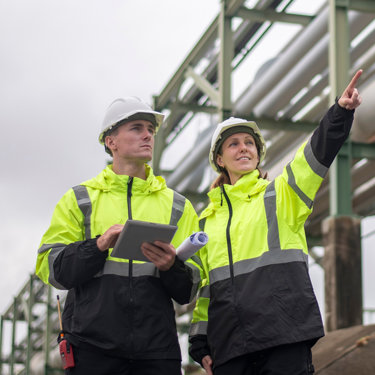What you need to know about the new Environment Act 2021
Published: 10 November 2021
It’s a momentous day, the Environment Bill passed into law today 1,056 days since it first appeared.
The act requires organisations to ‘pay regard to’ environmental principles: integration, prevention, precautionary, rectification at source, and the polluter pays. Nothing binding here but solid risk assessment, preventative maintenance strategies and robust response plans will pay dividends when regulatory bodies consider action following an incident.
However, there are plans to make legally binding targets on air quality, biodiversity, water, resource efficiency, and waste reduction by late 2022. Watch this space for development here.
There are some specific new requirements particularly in the water sector.
Water
There has been a lot of news recently about the water industry use of combined sewer overflows to discharge sewage in the event of exceptional rainfall. The Act mandates that the Government must produce a statutory plan to reduce discharges and their adverse impact from storm overflows, report on progress to parliament, and produce a report setting out the actions that would be needed to eliminate discharges from storm overflows in England, and the costs and benefits of those actions, by 1st September 2022.
There will be an increasing need for Government to work with the water industry to understand the challenges and design collaborative strategic solutions.
Monitoring
The Act also contains a new duty on water companies and the Environment Agency to publish data on storm overflow operation on an annual basis, near real time information - within one hour - on the operation of storm overflows, and monitor the water quality upstream and downstream of storm overflows and sewage disposal works.
We are working closely with a number of the water companies to assist them with this monitoring and data collection. Find out more in our whitepaper here.
Infrastructure improvements
In a last minute amend to the Act, there is now a legal duty on water companies to “progressively reduce the impacts of sewage pollution from storm overflows”. To drive this, Ofwat can issue enforcement notices that can direct specific actions or fine companies up to 10% of their annual turnover if they do not see sufficient progress from water companies.
The Act has made the creation of, and reporting on, five-year drainage and sewerage management plans a statutory duty for the water sector for the first time.
This update will require wholesale infrastructure review and cannot happen overnight, or indeed within the current AMP cycle. We are strategically partnering with a number of the water companies to develop innovative, strategic solutions to tackle this requirement.
Waste
The Act introduces extended producer responsibility (EPR) which means manufacturers will now be required to contribute to the disposal costs of the products they produce. By shifting these costs onto manufacturers, they will be forced to design products that are much easier to recycle.
A new service will go live in 2023/24 allowing the Government to also introduce a digital system to track waste movements and clamp down on waste crime. Currently waste is measured through quarterly returns and the limited tracking provided by the Duty of Care regime.
As experts in hazardous waste removal, we can help you to ensure you are disposing of your waste compliantly, through this transition and beyond.
Chemicals
The Act gives the secretary of state the power to amend REACH and the REACH Enforcement Regulations 2008. Both pieces of legislation are retained in EU law under the European Union (Withdrawal) Act 2018. The government says this will “ensure a smooth transition to a UK chemicals regime following the UK’s exit from the EU” keeping the legislation up to date and ensuring the effective management of chemicals.
Find out more in our whitepaper on REACH here.
More from our Knowledge Hub
 Insights
InsightsEarth Day 2025: Enabling a sustainable future while supporting today’s infrastructure in an evolving energy landscape
 Insights
InsightsMitigating climate change risks through planned preventive maintenance
 Insights
InsightsProtective coatings: Safeguarding infrastructure against climate change
 Insights
InsightsDelivering the Water (Special Measures) Act: Supporting compliance and innovation
Environmental compliance today, creating a sustainable tomorrow
Helping you reduce risk to the environment and your operation by managing assets compliantly while achieving commercial, ESG, and net-zero goals.
Contact our experts
